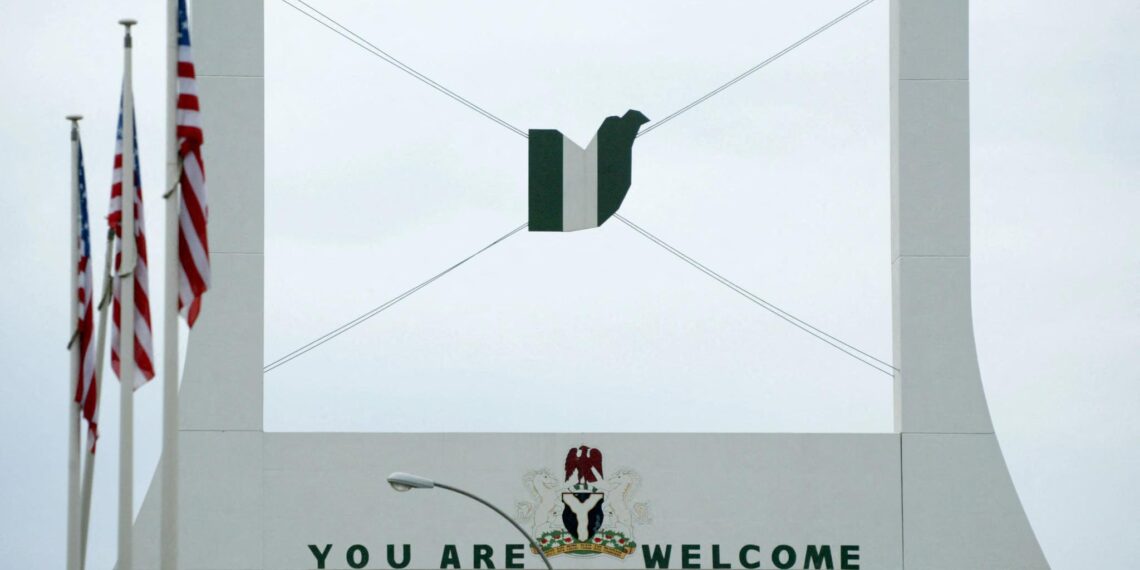In less than five days, the highly-anticipated Abuja International Marathon takes off and it will be broadcast live across Nigeria and the world by Afrosport TV.
The 42-kilometre event will see elite athletes from all over the world gather in the Nigeria capital city of Abuja while residents of the vibrant city will participate in the 5km run to promote fitness and well-being.
The route of the Abuja International Marathon will begin at the Abuja City gate. This is one of the most iconic landmarks in the Nigerian capital as it is the point that indicates arrival and entrance into the city.
The gate is a commemoration of the movement of the Nigerian federal capital from Lagos to Abuja in December 1991.
The Marathon will then run through Constitution Avenue, a business district that houses some big corporate organisations and is also home to Magic Land, an amusement park that is a popular recreation venue for children and adults on weekends and holidays.
The race will run through the Nnamdi Azikiwe Expressway, named after Nigeria’s first president and ceremonial Head of State between 1963 and 1966. One of the popular landmarks in this area is the National Open University, a public-run territory institution for distant learning.
The Marathon will move along into the Maitama/Asokoro Road on the Murtala Muhammad Express Way. The highway is named after former Nigerian military Head of State who was in power from July 1975 until his assassination on February 13, 1976. Some of the popular landmarks in this area include the Niger and Mabilla military barracks, the National Arboretum, the headquarters of Nigeria’s intelligence agency, the Department of State Services (DSS) and Aso Rock Villa which is the official residence of the President of Nigeria and is reportedly the most protected presidential residence in Africa.
The next route runs through Garki 2 with some notable landmarks including the National Printing Press and the headquarters of the defunct Special Anti-Robbery Squad (SARS) arm or the Nigeria Police. This route leads to Sani Abacha Way, one of the most popular areas in Abuja, housing a lot of businesses and government buildings. It is named after another former military Head of State, Sani Abacha, who ruled from November 1993 till his death on June 8, 1998.
One of the notable landmarks in this area is the National Central Mosque, a architectural masterpiece that was build in 1984 years before the Federal government officially moved to Abuja. Not far from the Mosque is the National Christian Centre, an Interdenominational build that was completed in 2005.
The Marathon will begin to reach a concluding point at Herbert Macaulay Way, another area popular for having government agencies and named after one of the prominent people that fought for Nigeria’s independence in 1960. One of the popular buildings in the area is the NNPC Towers, home of Nigeria National Petroleum Corporation, charged with regulating Nigeria’s oil industry but has since become a limited liability company.
The official route for The Abuja international Marathon 2023 pic.twitter.com/G6wdTDNntR
— Abuja International Marathon (@_Abujamarathon) April 20, 2023
The final stretch of Marathon is on Shehu Shagari Way, named after Nigeria’s former president between 1979 and 1983. In this area is the Federal Secretariat that houses multiple government ministries and agencies. It also houses Eagle Square where the Marathon finish line will be situated.
Eagle Square is popular for political functions such as the Independence Day Parade every October 1 and the swearing in of the Nigerian president on May 29 every four years. Eagle Square is also used for religious events, musical concerts and award ceremonies.







